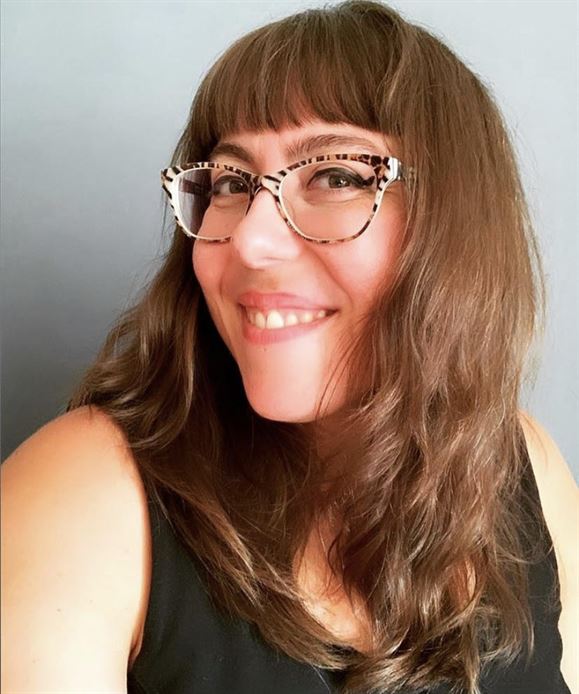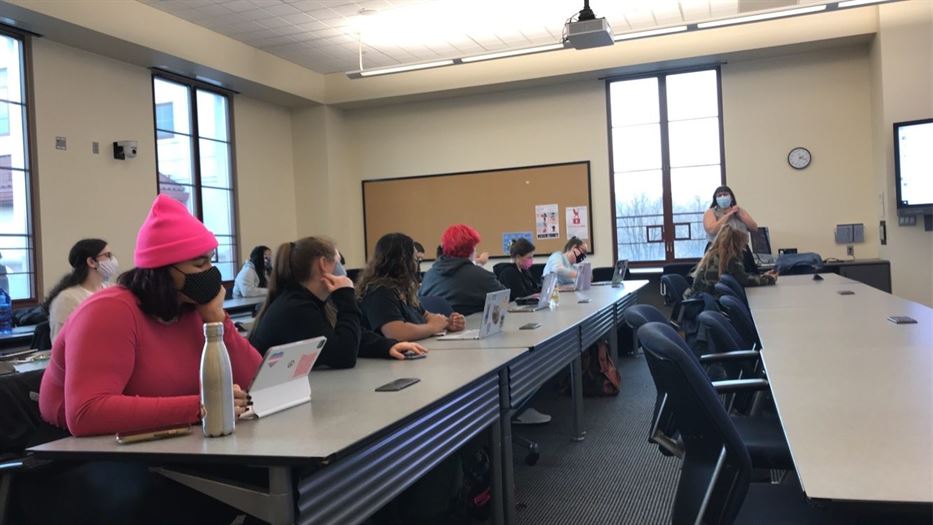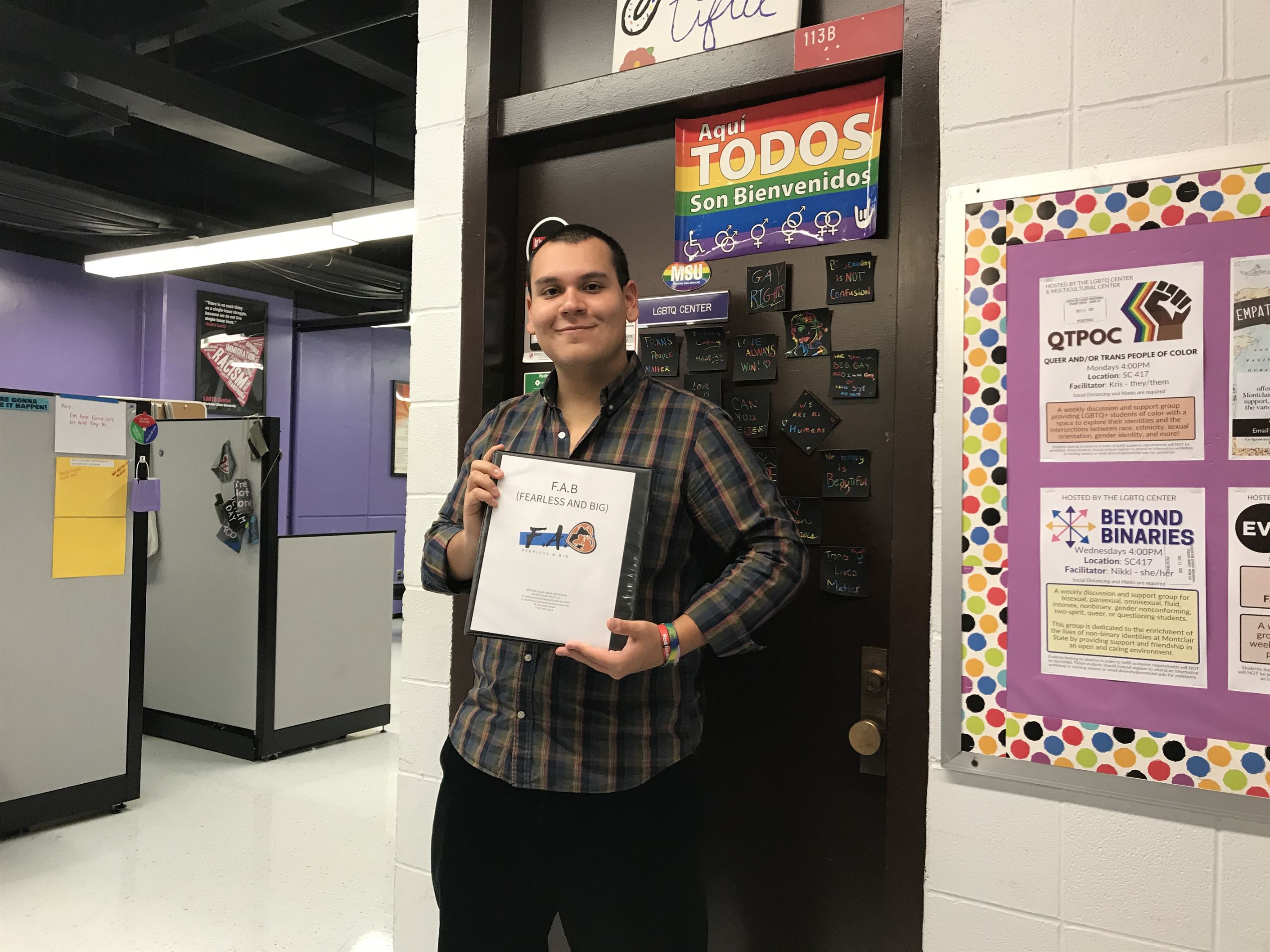For the first time at Montclair State University, the Gender, Sexuality and Women’s Studies Department offered a fat studies course last semester. The official name for the course is Fat Studies: Race, Class, Gender, Queerness.
Fat studies explores the ways fatphobia manifests in discrimination, intersectionality, healthcare, body image and much more. The movement against fatphobic systems is called the body liberation movement, also known as the fat liberation movement and body positivity.
Although the term “fat studies” may sound insensitive, the word “fat” has been reclaimed by the plus-sized community and is used in fat-positive discourse. Montclair State’s fat studies course is taught by professor Claudia Cortese.

Fat studies professor Claudia Cortese also does activist work in the fat liberation movement, such as writing articles.
Photo courtesy of Claudia Cortese
“I first proposed the course about two to three years ago and Dr. [Jessica] Restaino loved the idea,” Cortese said. “Last semester, we held a queer culture roundtable where we presented on a topic to add onto the course catalog. My presentation focused on the intersectionality of fatphobia and other marginalized identities.”
There was a clear show of approval for the course by both faculty members and students.
“Everyone was really excited about mine, and Dr. Restaino suggested creating the course,” Cortese said. “I sent the proposal and she immediately approved and the course was almost completely full by the end of registration.”
Spencer Crines, a sophomore gender, sexuality and women’s studies major and one of Cortese’s students, was unsure what to expect.
“Initially, I didn’t know what we would be talking about besides fatphobia and body positivity,” Crines said. “However, it has exceeded my expectations [in terms of] learning about where fatphobia stems from.”
According to Crines, a fat studies course is long overdue based on personal and general experiences of fatphobia on campus.
“There was one incident where our [fat studies] class was waiting outside our classroom and eating chocolate [when] a sports science professor saw us eating,” Crines said. “He commented on how dark chocolate is the healthiest type of chocolate and we entertained him by listening, but internally we all didn’t care.”
The Office of Social Justice and Diversity (OSJD) recently created a discussion group called Fearless And Big (FAB). Cristian Morillo, a senior psychology major and peer facilitator of the OSJD, leads the discussion group.
“FAB focuses on the fat acceptance and body positivity movement, and we mostly talk about current events involving those topics,” Morillo said. “We provide this for students who have an exaggerated sense of body image so that they are able to discuss their struggles and know that their body is perfectly OK, no matter how they perceive themselves.”
Morillo has never personally experienced fatphobia on campus but has noticed subtleties in classroom structures.
“For example, the desks in Dickson Hall are very small and constraining to someone who has a larger stomach, whether they are plus-sized, pregnant or simply bigger than the average person,” Morillo said. “It almost says that a certain type of person is not welcome in that space.”
As for the course, Fat Studies: Race, Class, Gender, Queerness, Cortese isn’t exactly sure where it is headed but feels optimistic.
“When discussing the future of Fat Studies: Race, Class, Gender, Queerness, it seems unclear,” Cortese said. “I believe it will be a process. Think of how queer studies were introduced in the ‘80s: there was one course, and then it became multiple, and now people can major in queer studies.”
Cortese shared that she feels hopeful about the impact the course will have on people.
“In fact, I believe there are only a dozen colleges in the country offering fat studies courses, and only one textbook called ‘The Fat Studies Reader’ with one edition,” Cortese said. “I am hopeful though that this becomes a permanent course and more are created because of it.”
If the course becomes permanent, Cortese encourages all sizes to register for the class.
“Fatphobia affects us all through physical and mental health,” Cortese said. “And, it is essential for everyone to accept our bodies and love ourselves. This will help people of all sizes, but our conversations will be centered around fat people.”
Cortese also emphasized that by learning more about fat studies and topics relating to fatphobia, people can better understand those around them.
“We all have fat people in our lives and I think it’s up to us to learn about fatphobia to have the most loving and non-harmful relationships with them,” Cortese said.




